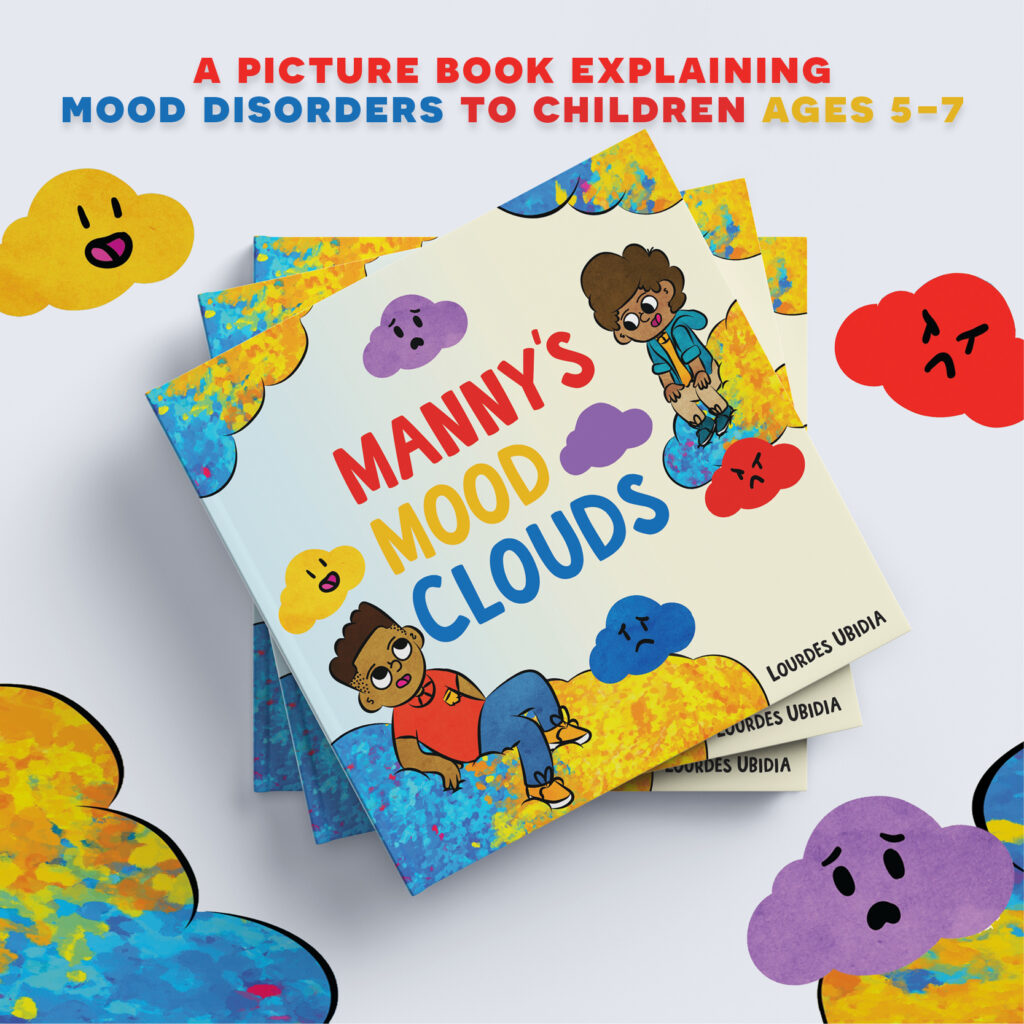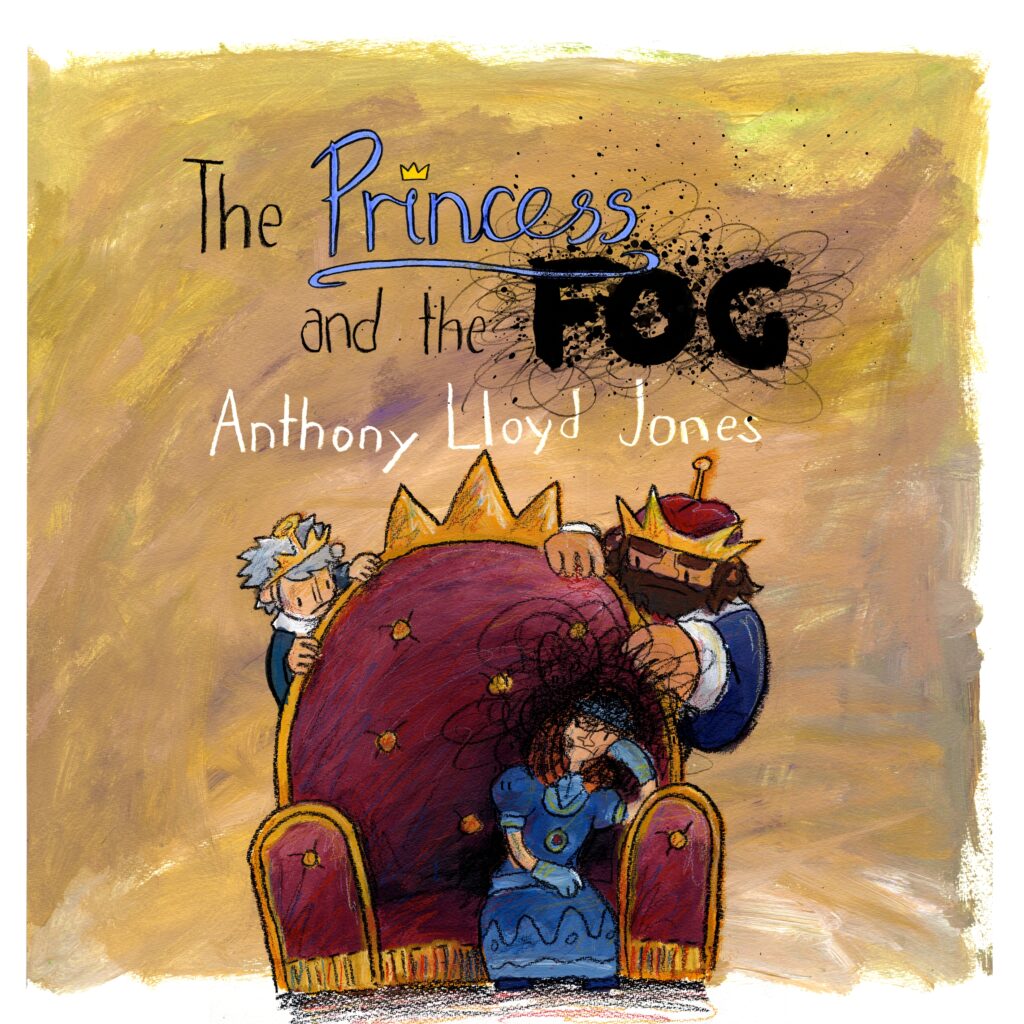This blog post was written by JKP author Lourdes Ubidia.
The genre of Mental Health and Wellness in children’s literature is crucial to creating a society of individuals who can openly discuss mental health issues and show empathy for those who struggle with any kind of mental disorder.
It starts in childhood. As children, we are tiny balls of clay, ready to be shaped by our environment, our curiosity, and our thirst to absorb as much information as possible. It is in this stage that we get the tiniest of glimpses into the tremendously complex and massive world around us. The media that we have taken in as kids truly does mold us into who we are today.
The topic of mental health and wellness is prevalent in our society, arguably more now than ever before. Giving children access to these resources will aid them as they grow to have the jargon, the tools, and the courage to discuss the difficult topic of mental health that may affect them or the ones they love. In doing so, maybe we can create a world in which mental health isn’t so difficult to talk about at all.
Some of the books from my childhood that have always stuck with me were the Magic School Bus series written Joanna Cole and illustrated by Bruce Degen, as well as the Arthur series written by Marc Brown. These books took me on adventures. I so strongly remember longing to explore the depths of the oceans or reach the heights of the moon such as in the Magic School Bus series or simply spending a day with Arthur and Buster as they rode their bikes. These books shaped my desire to learn, explore and question as a child, and now as an adult, that desire hasn’t changed. I credit these books as just one of the facets of my life that have made me who I am.

The world of children’s literature has expanded immensely since my childhood, especially in the topic of mental health and wellness. Yes, mystical adventures still exist for young readers to get lost in, but now, I feel there are so many more options regarding mental health than when I was child growing in the 90’s. When writing my book, Manny’s Mood Clouds, a story about a young boy who is watching his older brother manage a mood disorder and learning how to aid in his brother’s journey, I spent many nights researching mental health and wellness books for children. I was astonished by the selection. I was moved by the increasing number of books that touched upon topics like depression, anxiety, autism, mood disorders, sexuality, appearance, and just general discussion of feelings. It was then that I realized my true intention for writing my book was to give a child the resource I wish I had when I was younger.

One children’s book that I felt was a standout in mental health literature for children was The Princess and the Fog by Llyod Jones. While researching for my own book, it was this title that sparked something in me to create a children’s book that as fun and easily digestible as this one was. The Princess and the Fog tells the story of a princess who had it all, but despite this, her fog was bringing her down. Using the metaphor of a fog to describe depression to young readers who may be affected by it, or have loved ones who are, was truly remarkable to me. I couldn’t imagine what it would have been like to read a book like this in my youth. Perhaps this would have aided in my ability to openly discuss intense emotions, especially periods of sadness that would plague me for months on end.
It wasn’t until I became a young adult that I was able to find the courage to seek professional mental help for my issues. This was mainly due to the stigma that followed me throughout my life. Growing up in a Hispanic household, in a neighborhood of full of minorities, there was little to no discussion about emotions or mental disorders. Anyone in our lives that dealt with an illness would simply be put under one category. An offensive category that was just a blanket term used by those around us to avoid delving further into the issue. “Crazy” was a word used then that felt like it absolved all others of the responsibility of doing their part of being compassionate and doing the work to understand those around us who struggled with mental health. I believe strongly that if I, and my peers, would have been introduced to media that discussed mental health in a way that wasn’t taboo at a younger age, we’d be even further along in our advancements in mental wellness than we are today.
Many of us don’t understand the power that children’s literature has in shaping our society. A book can open doors to powerful discussions, honest questions, and insightful responses from the little ones in our lives. Children can understand the topic of mental health much more than we think. Kids themselves can be faced with anxiety, depression, mood disorders, and so much more. Mental health and wellness literature for children is the key to shaping a society of compassionate individuals who have the emotional tools to discuss their own personal struggles, to seek help when needed, and to be a resource for others who may be struggling.
Manny’s Mood Clouds by Lourdes Ubidia is out now!